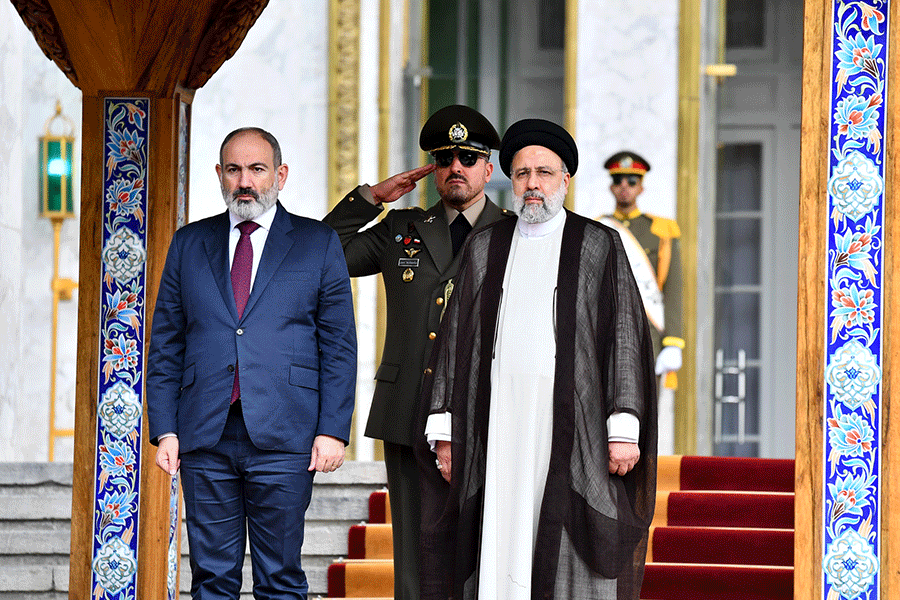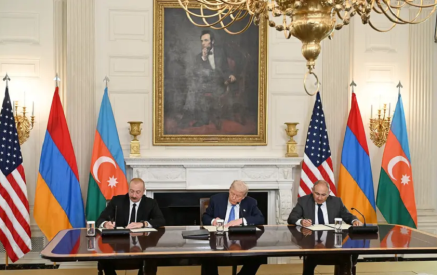As Armenia and Azerbaijan come closer to signing an agreement by the end of 2023, and competition grows between Russia and the West to lead the process and take the prize of the main pacifier, other regional actors take steps to clarify their positions. In this context, Iran stands out as one of the primary buffers against the growing role of the West in the South Caucasus.
Being engaged with the US in continuing negotiations to revive the 2015 nuclear deal in full or at least partly, Iran is simultaneously concerned by the US efforts to reduce Russian influence in the South Caucasus. This is not because Iran loves or trusts Russia but because Iran understands the dangers of being encircled by the US, including from the north. Moreover, for Iran, US influence does not mean US military bases or US direct investments.
Read also
Tehran understands the current trends of global geopolitics too well to not have a clear vision of what influence means in the 21st century. A country does not need boots on the grounds or direct investments to exert influence. This can also be done through a network of alliances and partners, and since the end of the Second World War, this is what Americans are best at. Thus, from Iran’s perspective, the increase of Israeli presence, or the growth of Turkish influence, at the end of the day, brings the same result: more US in the region.
In this context, Iran cannot ignore the Armenia – Azerbaijan peace negotiations, especially given the growing US involvement. The US was also among the key players in the negotiation process before the 2020 Nagorno Karabakh war through its position as the OSCE Minsk Group co-chair country. Nevertheless, at that period, Russia was playing a leading role in the negotiation process as another co-chair. However, the war in Ukraine de facto killed the OSCE Minsk Group.
As Russia has shifted its resources to Ukraine and its confrontation with the collective West, the US has significantly increased its involvement in the negotiation process in an individual capacity. Americans organized two days–long summits of foreign ministers in Washington, pushing forward the work on a peace treaty. The US cooperates closely with the EU, and these two parallel Washington/Brussels negotiation tracks embody the West’s growing influence.
Meanwhile, Turkey is sending clear signals that immediately after the Armenia – Azerbaijan peace deal, it is ready to fully normalize relations with Armenia, including opening the land border and establishing diplomatic relations. One does not have to be a distinguished expert in international relations to understand that these steps will significantly impact the balance of power in the region, making Turkey and Azerbaijan’s positions much stronger. At the same time, from the Iranian perspective, at the strategic level, Turkish influence equals the US influence. No public or private brawls between US and Turkish officials on issues such as Sweden’s NATO membership can change the Iranian calculus.
Meanwhile, the South Caucasus is not the primary arena for Iranian vital national interests and cannot compete with the Middle East to attract Iranian resources. As Iran’s economy faces multiple challenges, Tehran cannot reduce its involvement in Syria, Iraq, and Lebanon to expand its presence in the South Caucasus. Moreover, Iran cannot afford a direct clash with Turkey in the region. Thus, given limited resources and geopolitical constraints, Tehran’s primary tools in the region are sending messages to Russia and, to a lesser extent, to Armenia about its concerns, hoping that Kremlin will take them into account. In this context, the paper published by Ali Akbar Velayati, a senior adviser to the Leader of the Islamic Revolution Ayatollah Ali Khamenei, on international affairs, is of utmost importance, as it delivered the main strategic messages of Iran’s views on the ongoing geopolitical struggle in the South Caucasus.
Velayati clearly stated that the intention behind the idea to establish links that connect Nakhchivan to the Republic of Azerbaijan is to divide Armenia into two parts, disconnect Iran and Armenia, limit Iran’s connection to the outside world, and disrupt Iran’s free connection with North Caucasus, Russia, and the European continent. Then Velayati argued that the establishment of a link between Turkey and Chinese Xinjiang, more than signifying the formation of an imaginary world named pan-Turkism, would lead to the creation of a strip that would surround Iran from the North and Russia from the south and spread NATO’s influence in the region, simultaneously creating significant problems for China. The goal of this strategic assessment is clear – to warn Russia that if Kremlin continues to decrease its involvement in the region, it will have long-term, very negative implications for Iran, Russia, and China. Meanwhile, it gives us a better understanding of Iranian thinking: Tehran, Moscow, and Beijing have coinciding interests in the region and should jointly counter the US.
Iranian officials delivered the same message to the Armenian minister of foreign affairs during his July 24 visit to Tehran. Iranian President Ebrahim Raisi reiterated Iran’s position that the countries in the region should settle regional problems and that any foreign intervention will only complicate issues. Raisi explicitly emphasized that Armenia – Azerbaijan negotiations must be carried out based on the two nations’ interests and without political conspiracies involving the US and Israel.
The primary audience of these messages is Russia, as Iran understands very well that the Armenian government will not abandon the Washington track, especially as high-level Armenian officials clearly state that they welcome the growing role of the US in the region. Interestingly, Russia, in recent weeks, has significantly increased its involvement in Armenia – Azerbaijan negotiations.
The Kremlin organized a meeting between Armenia and Azerbaijan foreign ministers in Moscow on July 25. It aims to bring Prime Minister Pashinyan and President Aliyev to Moscow to sign a peace agreement, thus fomenting its role as the leading player in the region.
Assessing how much these recent Russian activities were influenced by constant Iranian messages is challenging. However, from the Iranian perspective, the signature of the Armenia – Azerbaijan peace agreement in Moscow is a better option than the ceremony held in Brussels, Vienna, Geneva, or Washington.























































